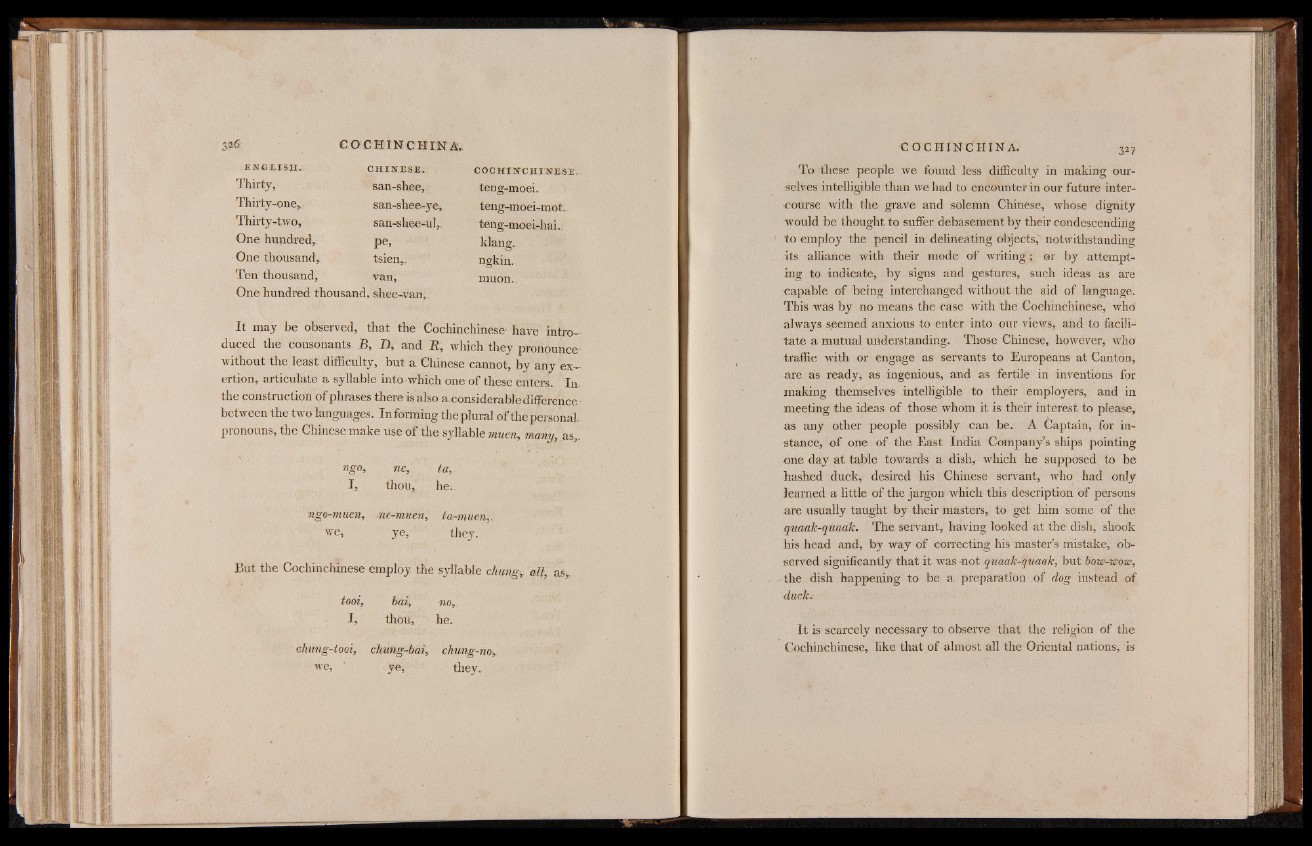
EN G L I SH , .
Thirty,
Thirty-one,;
Thirty-two,
One hundred,.
One thousand,
Ten thousand,
C H IN E S E ,
san-shee,
san-shee-ye,
san-shee-ul,
pe,
tsien,.
van,
C O C H IN C H IN E S E .
teng-moei.
teng-moei-mot..
teng-moei-hai..
klang.
ngkin.
muon..
One hundred thousand, shee-van,.
I t may be observed, that the Cochinchinese have introduced
the consonants B, B , and R, which they pronounce
without the least difficulty, but a Chinese cannot, by any exertion,
articulate a syllable into which one of these enters.. In.
the construction of phrases there is also a considerable difference-
between the two languages. Informing the plural of the personal;
pronouns, the Chinese make use of the syllable muen, many,,as,.
nga, me, ta,
I, thou, he-..
ngo-muen, ne-muen, ta-muen,.
we, ye, they.
But the Cochinchinese employ the syllable chung, all,
tom, bai, no,-
I, thou, he.
as*
chimg-tooi, chung-bai, chung-no,
we, ' ye, they.
To these people we found less difficulty in making ourselves
intelligible than we had to encounter in our future intercourse
with the grave and solemn Chinese, whose dignity
would be thought to suffer debasement by their condescending
to employ the pencil in delineating objects,' notwithstanding
its alliance with their mode of writing; or by attempting
to indicate, by signs and gestures, such ideas as are
capable of being interchanged without the aid of language.
This was by no means the case with the Cochinchinese, who
always seemed anxious to enter into our views, and to facilitate
a mutual understanding. Those Chinese, however, who
traffic with or engage as servants to Europeans at Canton,
are as ready, as ingenious, and as fertile in inventions for
making themselves intelligible to their employers, and in
meeting the ideas of those whom it is their interest to please,
as any other people possibly can be. A Captain, for instance,
of one of the East India Company’s ships pointing
one day at table towards a dish, which he supposed to be
hashed duck, desired his Chinese servant, who had only
learned a little of the jargon which this description of persons
are usually taught by their masters, to get him some of the
quaak-quaak. The servant, having looked at the dish, shook
his head and, by way of correcting his master’s mistake, observed
significantly that it was -not quaak-quaak, but bow-wow,
the dish happening to be a preparation of dog instead of
duck.
I t is scarcely necessary to observe that the religion of the
Cochinchinese, like that of almost all the Oriental nations, is